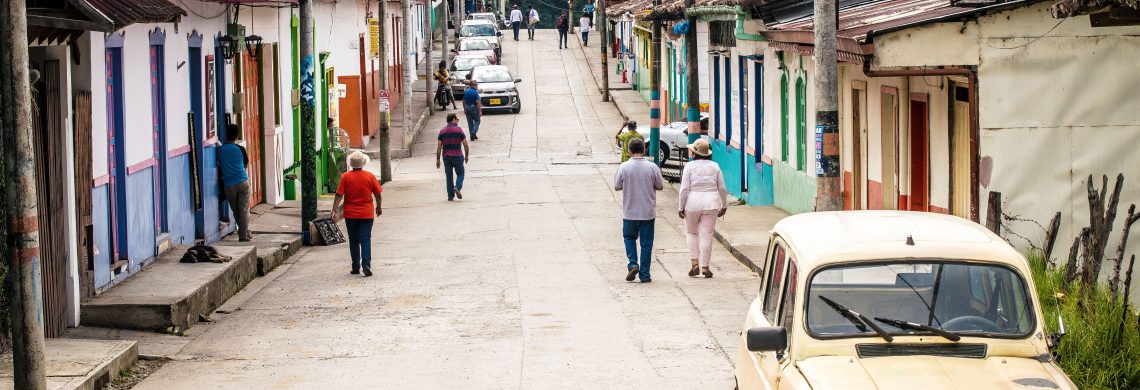Risk management in Latin America: ‘opportunity-rich growth market’
18 june 2020

Thanks to a network of expert partners, Riskonet is active on a global scale. However, what exactly is the state of affairs in all these regions in the field of risk management? We're exploring just that in a series of background narratives. In part 1, we travel to Latin America: the main catchment area of Carlos Pelacani.
"Many Latin American countries rely heavily on aid in the wake of an event as opposed to preventing or preparing for it.” Says a report on the region by the insurance agency Zurich. With reference to natural disasters - a major risk for several countries in the region.
Risk averters
Remarkably, Brazilian risk management expert Carlos Pelacani refers to South American companies as risk averters rather than seekers. As an experienced partner of Riskonet, Pelacani’s opinion is highly regarded and he counts many companies in the region among his clients. "It depends on the industry, but risks are generally avoided. Research into the role of risk management within companies supports this. In Latin American countries, a significant number of companies implement policies in which risk management is quite good to good or even very well developed". On the continent, approximately two-thirds of companies carry out risk management at an (exceptionally) adequate level. Countries such as Brazil, Argentina, Colombia and Chile are regarded as regional leaders in this field.
Leading countries
The four countries mentioned, along with Peru and Uruguay, are better developed in terms of industrial diversity, economy and governance than the other countries in the region. The risks faced by each of the six nations are virtually identical, although it should be noted that priority varies from country to country. "Leading countries are particularly concerned about risks related to finance, regulation, the value chain and operational continuity," explains Pelacani. It is striking that natural disasters are not seen as one of the most critical risk factors. The World Bank says the continent is heavily exposed and sensitive to environmental risks. Pelacani considers natural disasters to be a significant risk, but not for the entire region: "Chile, Peru and Colombia face a risk of earthquakes, but in Brazil and Argentina the threat is minimal".
Perceptions
Pelacani notes that the shortlist of major risks is subject to fashion and is also fraught with perceptions. "Recently, in some countries in Central and South America, cyber risk has appeared on the list of subjects organisations wish to arm themselves against.” While this is a serious threat, Pelacani is wary of risk policies based on hypes. "There is a balance between what the insurance industry, for example, refers to as risks and what is of genuine importance to our clients in terms of cost-efficient risk avoidance actions." In his day-to-day operations, Carlos Pelacani takes great care when advising his clients on risk management. " If companies perceive something in the market as a risk, they place it high on the agenda. If competitors are working on it, then they must also take action, is the way things happen in most of the industries. They don't always wonder if they're truly at risk." Pelacani therefore always begins with a risk analysis. In doing so, he evaluates which risks a company really faces. Thorough research upon any proposed concerns. "Insurance companies and intermediaries change the perception of clients without knowing them personally. You can only issue risk management advice if you are familiar with your client's objectives and challenges," emphasises Pelacani.
"Many Latin American organisations do not take new risks into account in their risk policies. Among the companies that do look ahead, the vast majority mainly look to the recent past as an indicator of what can be expected for the future."
Foresight
Another aspect that strikes Pelacani in daily practice is that many Latin American companies do not take new risks into account in their risk policies. Half of them lack this vision, research shows. Among the companies that do look ahead, the vast majority mainly look to the recent past as an indicator of what can be expected for the future. To a lesser extent, third-party analyses and scenario planning are also used. "Until recently, for example, the risk of a pandemic was never mentioned in the list of future risks. Although this had also occurred in the past", states Pelacani.
Risk manager
According to Pelacani, most Latin American companies tackle risks through consultants. Some of them specialise in financial risks, but the majority are intermediaries and insurance agencies. The larger intermediaries and insurance agencies offer risk management, although it is still exceptional to have a complete team dedicated to risk management within a specific type of risk. "When I look at my own experiences, companies typically appoint a mid-level manager to handle risk, even though they spend the majority of their time working on other commitments or positions. Only a few companies Pelacani knows have a Chief Risk Officer on board. "Usually this is within the chemical industry or companies involved in infrastructure, energy or mining. Even in financial institutions which are heavily regulated by governments, I see the same pattern."
Hard market
Based on recent market research and Carlos Pelacani's years of practical experience, it can be concluded that South America has an enormous will to evolve and a focus on risk management. However, growth is both possible and necessary in several areas. For example, the focus is often directed too far into the past and not sufficiently to the future. Pelacani advocates more out-of-the-box thinking. There also seems to be room for professionalisation, as in-house teams or management experts are lacking. As a result, risk managers have plenty of work to do. Especially now - as in the rest of the world - the South American insurance agencies have become bogged down in a 'hard market' as a result of the corona pandemic. Insurance premiums are rising due to a significant increase in the number of claims. Lloyd's of London, the world's largest insurance trading hub, calculated in May that by 2020 insurers will face claims worth at least $107 billion, not counting life insurance. "In Brazil, the premium for liability insurance has already doubled", Pelacani observed. In today's hard market, there are ample opportunities for risk analysts, according to Pelacani. "Companies now need to significantly improve their risk analysis. Due to the increased prices, haphazard or visionless insurance is no longer an option."
About PELACANI
Carlos Pelacani has headed PELACANI Risk Management and Engineering since 2015. With more than twenty years of experience in the Brazilian and South American markets, PELACANI is one of the leading national specialists in the field of risk management. Pelacani and its partners lead the field in aspects such as risk management concerning industrial buildings. This includes a healthy working environment, along with the prevention of fire hazards and explosions and protection against storms and floods.





